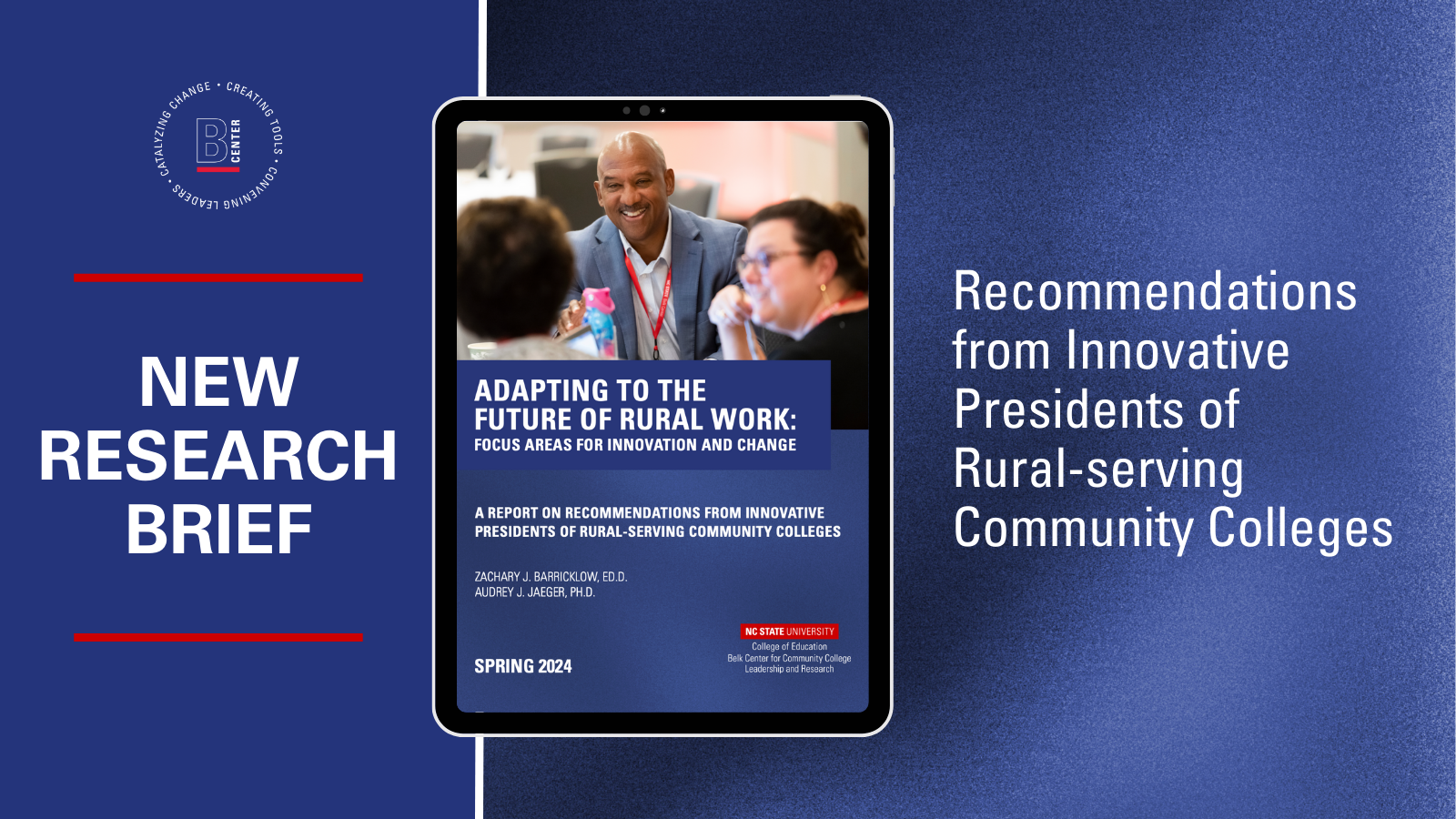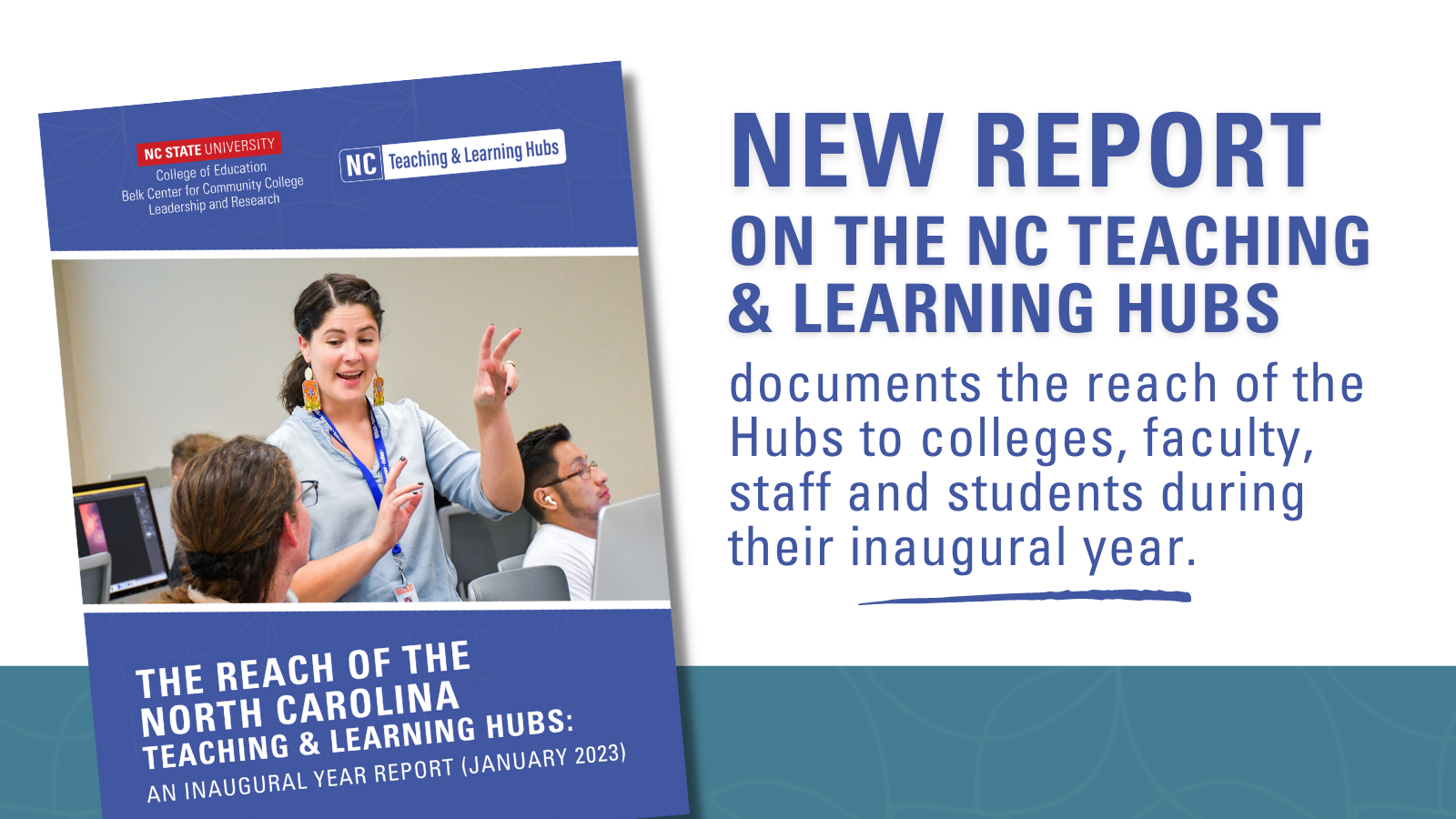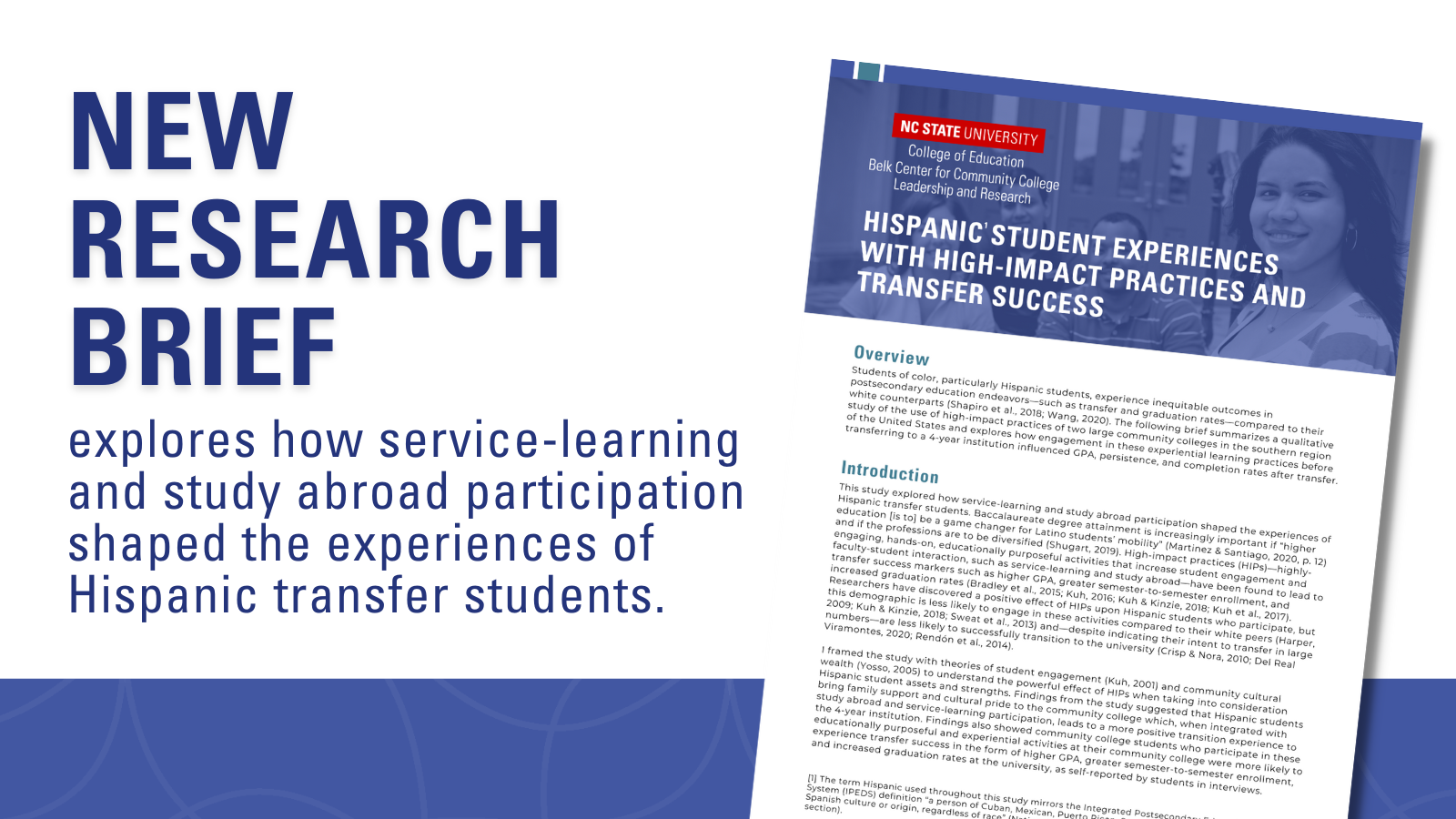Belk Center Brings Community College Presidents, Trustees Together to Discuss Ways to Improve Student Outcomes, Economic Mobility at 1st Presidents’ Academy
COLFAX, N.C. — myFutureNC — a statewide commission focused on educational attainment that includes former state legislators and other leaders from education, business, philanthropy and nonprofit organizations — has set a goal for 2 million adults in North Carolina to hold post-secondary degrees or credentials by 2030 to ensure the state’s economic well-being.
What role do community colleges play in realizing this goal and enhancing North Carolina’s economic competitiveness, and how can they help the state’s residents improve their economic mobility and meet future workforce demands?
Presidents and trustees of community colleges from across North Carolina weighed those questions Thursday, May 23, 2019, during a statewide leadership conference held at Guilford Technical Community College that focused on the challenges and opportunities community colleges face to support the state’s economic growth.
Hosted by the NC State College of Education’s Belk Center for Community College Leadership and Research*, the event was the first meeting of the Presidents’ Academy, a partnership between the college, N.C. Association of Community College Presidents, the state community college system, Achieving the Dream and the Aspen Institute’s College Excellence program that provides ongoing support to community college leaders to help them strengthen their institution’s performance and post-completion outcomes.
The first Presidents’ Academy was designed to give presidents and trustees the opportunity to dig deep into data specific to their region about educational attainment and projected workforce demands, as well as to engage in a discourse about what they can do as leaders to help their community colleges improve student outcomes and economic mobility, said Audrey Jaeger, Ph.D., executive director of the Belk Center for Community College Leadership and Research and Alumni Distinguished Professor of the NC State College of Education. “[The Presidents’ Academy] gives presidents and trustees . . . the opportunity to see how their regions stack up so that we as regions and as a state can make decisions about how to move forward.”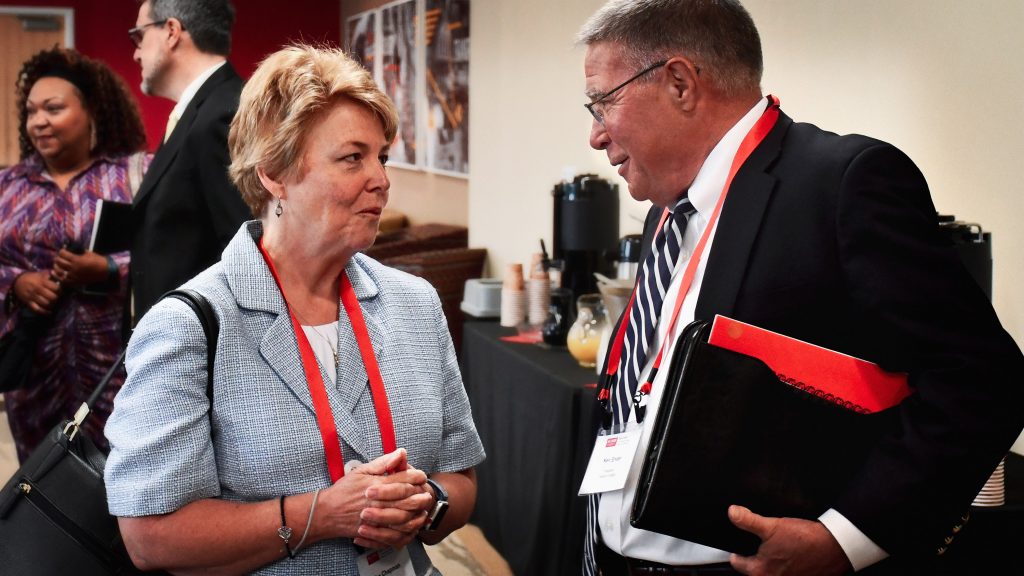
In the afternoon, the presidents and trustees were divided into eight region-specific working groups to analyze data and brainstorm next steps. In the morning, they heard from several keynote speakers from the business, nonprofit and community college sectors that included MC Belk Pilon, president and board chair of the John M. Belk Endowment.
“Our community colleges are among the state’s most critical assets to leverage and accelerate the education and upscaling of our state’s homegrown talent so that economic mobility and economic growth will create an updraft for all North Carolinians,” Pilon said.
David Mounts, chair and CEO of technology company Inmar, added that it was crucial for community colleges to focus on creating a pipeline of graduates with technical skills to meet market demands. Data shows two-thirds of all new jobs in North Carolina require a post-secondary degree or credential, but fewer than one-half of the state’s residents have one. In addition, Mounts predicted about two-thirds of current jobs will be replaced by technology in the future.
So, he said, community colleges need to be in a position to prepare students for jobs that may not yet exist. If they are unsuccessful, he added, businesses will look to relocate and economic opportunities within the state will begin to shrink.
He suggested deepening partnerships with high schools and businesses to create early internships that can help create a culture of high school graduates who understand that the community college system is invested in their success.
“We have to integrate together earlier in the stream,” he said. “I would argue that there’s a strong case that we should be integrating at the high school level, with internships in business that can transfer to the community colleges. I think it gives us a really special opportunity to begin to integrate together as a community.”
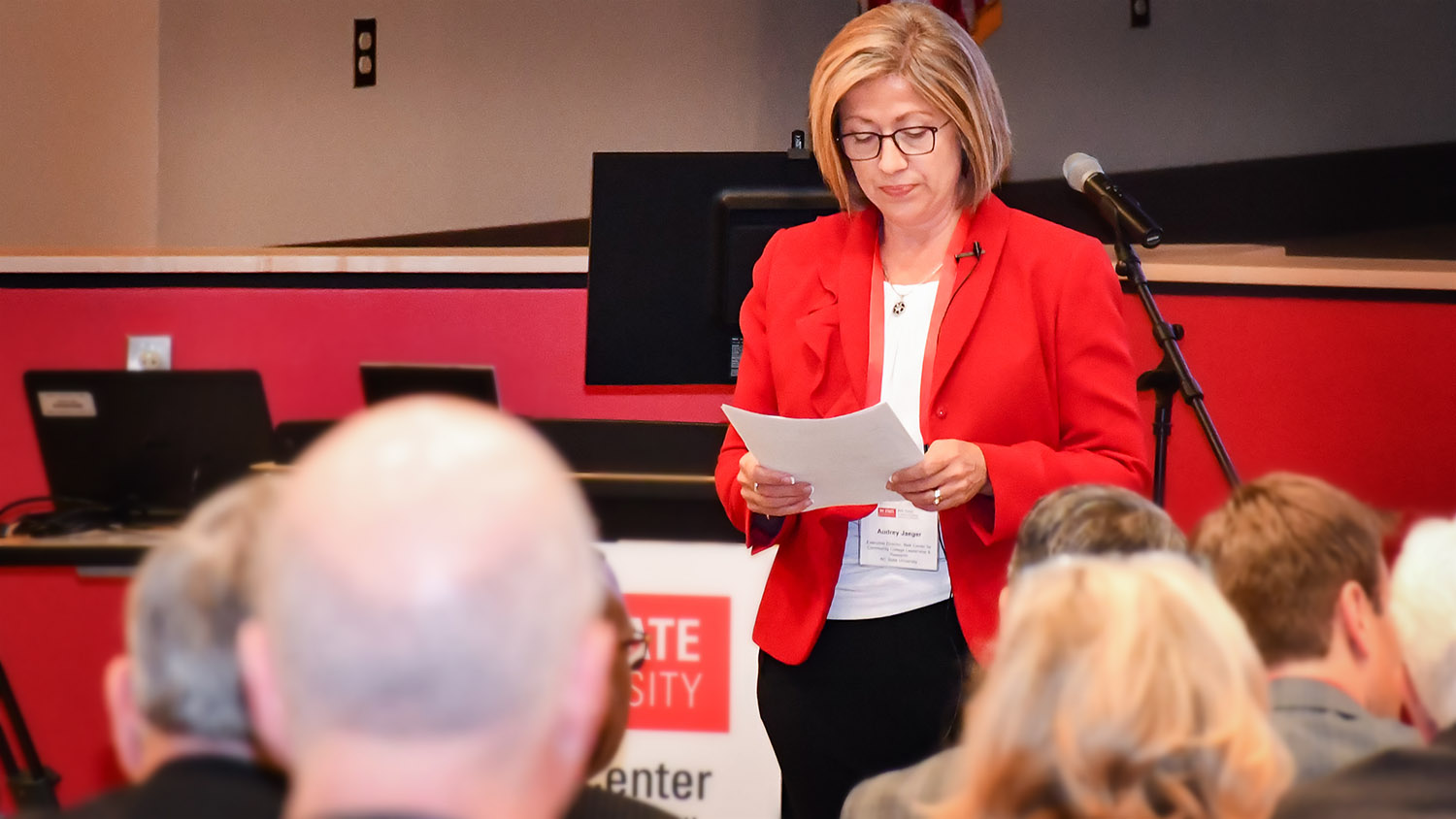
Mounts also encouraged community college presidents and trustees to take advantage of their unique position in the state by becoming experts in demand forecasting for the job market and in working in conjunction with local businesses to understand the “innovation ecosystem” as the jobs landscape changes.
But a community college degree is not just about getting a job and meeting workforce demands; the degrees also provide residents with lasting economic mobility, he said.
Mary Rittling, Ph.D., president emerita of Davidson Community College, concurred in her response to the keynote addresses: “Often times we just look at ‘we’re going to get you the job,’ but it’s more than just the job. It’s about the career and lifelong opportunity for social mobility and stability and a wage that is a living wage for a family.”
Rittling added community colleges need to focus on reaching underserved groups, including African Americans, the Hispanic community and the unemployed and underemployed in order to avoid a shortage in the number of workers needed in the job market.“If we concentrate on these three groups, we could make a difference,” she said.
Presidents and trustees considered how to do that in their afternoon working groups and will continue to engage with each other through various platforms facilitated by the Belk Center in the months and years ahead.
“Today is not the end,” said John Enamait, Ph.D., president of Stanly Community College. “Today is the culmination of more than two years of work and today marks the beginning of this work. This will aid us tremendously in the near future and beyond.”
*The Belk Center is currently in the planning stage. It is in compliance with NC State’s Policy on Centers and Institutes.
- Categories:
